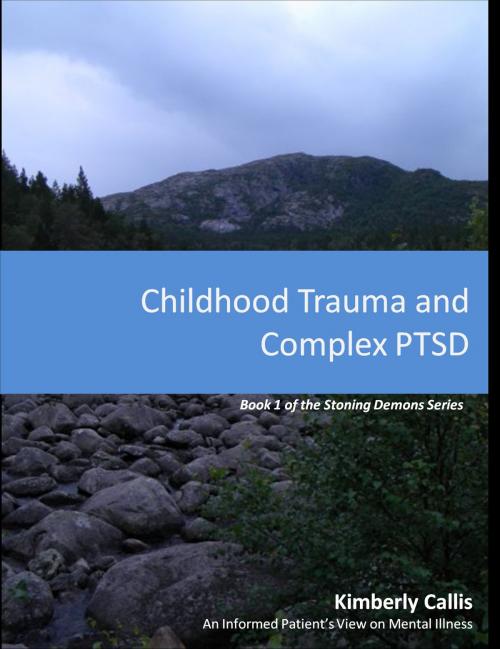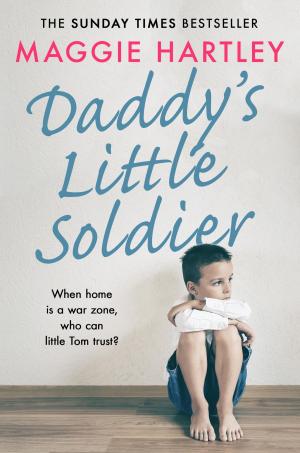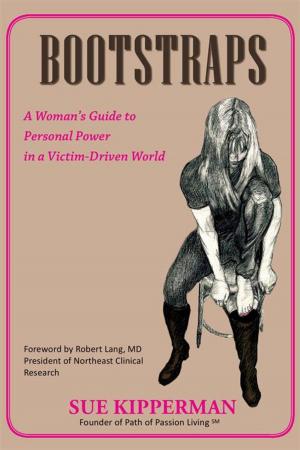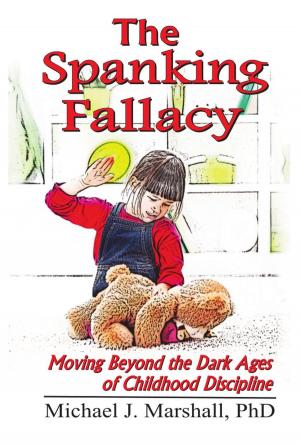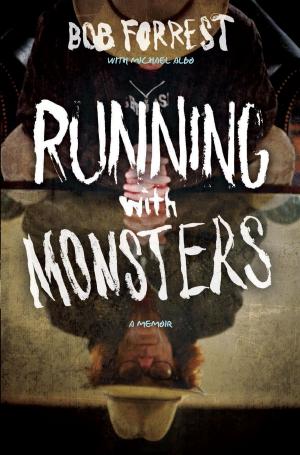Childhood Trauma and Complex PTSD
Nonfiction, Health & Well Being, Psychology, Pathological Psychology, Family & Relationships, Family Relationships, Abuse| Author: | Kimberly Callis | ISBN: | 9781311459671 |
| Publisher: | Kimberly Callis | Publication: | May 6, 2014 |
| Imprint: | Smashwords Edition | Language: | English |
| Author: | Kimberly Callis |
| ISBN: | 9781311459671 |
| Publisher: | Kimberly Callis |
| Publication: | May 6, 2014 |
| Imprint: | Smashwords Edition |
| Language: | English |
Chapter 1 explains how trauma experienced in childhood can prime a person for development of Complex Post-Traumatic Stress Disorder later in life. I found the study of developmental psychology extremely helpful for understanding the deeper effects of my CPTSD. Reading about it helped me in surprising ways. I stumbled onto the topic while I was researching dysfunctional families. Getting to some level of understanding of the topic has led me to look at childhood and its foundation for development of emotional, relational, self-regulatory and self-image imprints into adulthood in a clearer, less emotional way. It helped me detach a bit from experiencing my pain, to understanding it.
More chapters will be coming:
Complex PTSD Symptoms
Post-Traumatic Stress Diagnostic Criteria
Recurrent Trauma and Chronic Stress
Re-Experiencing
Avoidance
Hyper-Arousal
Impairment of Functioning
Disorders of Extreme Stress Diagnostic Criteria
Changes in Self-Regulation
Cognitive Changes
Changes in Self-Perception
Changes in Relationships
Loss of Meaning
Progression of CPTSD
Primary Development Traumas
Secondary Traumas
Onset and Progression
Early Psychological Symptoms
Triggers and Environmental Clues
Worsening Psychobiological Issues
Serious Episodes and Crises
Accepting the Diagnosis
Recovery, Remission and Relapse
Psychobiological Effects of CPTSD
Somatization and Comorbid Illness
CPTSD Effects On the Brain
Chronic Health Issues
Cardiovascular Disease
Endocrine System
Digestive and Serotonergic System Imbalance
Immune System
Reproductive System
Complications and Risks with CPTSD
Life Changes
Related Psychological Disorders
Anxiety
Depression
Eating Disorders
Substance Use and Addiction Disorders
Obsessive-Compulsive Disorder
Deliberate Self-Harm Syndrome
Sexual Dysfunction
Psychiatric Complications
Suicidality
Psychosis
Treatment Approaches for CPTSD
Professional Treatment Approaches
Psychotherapy
Pharmaceutical Treatment
Crisis Intervention and Treatment
Self-Managed Therapy
Research and Reading
Journaling
Daily Journal
Symptom Journal
Intrusive Thoughts Journal
Flashback/Dream Journal
Inventories
Symptom Inventory
Trauma Inventory
Trigger Inventory
Growth Inventory
Reviewing and Reframing
Developmental Trauma Work
Secondary Trauma Work
Reframing Goals
Self-Medication and Medical Marijuana
Why Cannabis Works
Stress and Endocannabinoid System Suppression
Calming Active PTSD Symptoms
Support for Narrative Therapy
Support for Comorbid Disorders and Chronic Illness
Substance Abuse vs. Medicating
Treatment Considerations
Caution is Needed
Call for More Studies… and Legalization
Social Stigma of Marijuana Therapy
Knowing When to Stop Medicating
Personal Growth and Change in Recovery
Positive Inclination
Regression and Regrowth
Recognizing Responsibility
Healthy Expression of Anger
Grieving
Forgiveness
Perspective
Acceptance
Rebuilding Trust and Attachment
Honoring Strengths
Finding Self-Love
Becoming My Own Guardian
Finding New Meaning
Maintaining Long Term Health with CPTSD
Nutrition and Mental Wellness
Excitotoxins and Induced Symptoms
Rest, Exercise and Resilience
Long Road to Neurological and Physical Recovery
Building a Safe, Low-Stress Life
Double Chronic, With a Twist
Chapter 1 explains how trauma experienced in childhood can prime a person for development of Complex Post-Traumatic Stress Disorder later in life. I found the study of developmental psychology extremely helpful for understanding the deeper effects of my CPTSD. Reading about it helped me in surprising ways. I stumbled onto the topic while I was researching dysfunctional families. Getting to some level of understanding of the topic has led me to look at childhood and its foundation for development of emotional, relational, self-regulatory and self-image imprints into adulthood in a clearer, less emotional way. It helped me detach a bit from experiencing my pain, to understanding it.
More chapters will be coming:
Complex PTSD Symptoms
Post-Traumatic Stress Diagnostic Criteria
Recurrent Trauma and Chronic Stress
Re-Experiencing
Avoidance
Hyper-Arousal
Impairment of Functioning
Disorders of Extreme Stress Diagnostic Criteria
Changes in Self-Regulation
Cognitive Changes
Changes in Self-Perception
Changes in Relationships
Loss of Meaning
Progression of CPTSD
Primary Development Traumas
Secondary Traumas
Onset and Progression
Early Psychological Symptoms
Triggers and Environmental Clues
Worsening Psychobiological Issues
Serious Episodes and Crises
Accepting the Diagnosis
Recovery, Remission and Relapse
Psychobiological Effects of CPTSD
Somatization and Comorbid Illness
CPTSD Effects On the Brain
Chronic Health Issues
Cardiovascular Disease
Endocrine System
Digestive and Serotonergic System Imbalance
Immune System
Reproductive System
Complications and Risks with CPTSD
Life Changes
Related Psychological Disorders
Anxiety
Depression
Eating Disorders
Substance Use and Addiction Disorders
Obsessive-Compulsive Disorder
Deliberate Self-Harm Syndrome
Sexual Dysfunction
Psychiatric Complications
Suicidality
Psychosis
Treatment Approaches for CPTSD
Professional Treatment Approaches
Psychotherapy
Pharmaceutical Treatment
Crisis Intervention and Treatment
Self-Managed Therapy
Research and Reading
Journaling
Daily Journal
Symptom Journal
Intrusive Thoughts Journal
Flashback/Dream Journal
Inventories
Symptom Inventory
Trauma Inventory
Trigger Inventory
Growth Inventory
Reviewing and Reframing
Developmental Trauma Work
Secondary Trauma Work
Reframing Goals
Self-Medication and Medical Marijuana
Why Cannabis Works
Stress and Endocannabinoid System Suppression
Calming Active PTSD Symptoms
Support for Narrative Therapy
Support for Comorbid Disorders and Chronic Illness
Substance Abuse vs. Medicating
Treatment Considerations
Caution is Needed
Call for More Studies… and Legalization
Social Stigma of Marijuana Therapy
Knowing When to Stop Medicating
Personal Growth and Change in Recovery
Positive Inclination
Regression and Regrowth
Recognizing Responsibility
Healthy Expression of Anger
Grieving
Forgiveness
Perspective
Acceptance
Rebuilding Trust and Attachment
Honoring Strengths
Finding Self-Love
Becoming My Own Guardian
Finding New Meaning
Maintaining Long Term Health with CPTSD
Nutrition and Mental Wellness
Excitotoxins and Induced Symptoms
Rest, Exercise and Resilience
Long Road to Neurological and Physical Recovery
Building a Safe, Low-Stress Life
Double Chronic, With a Twist
